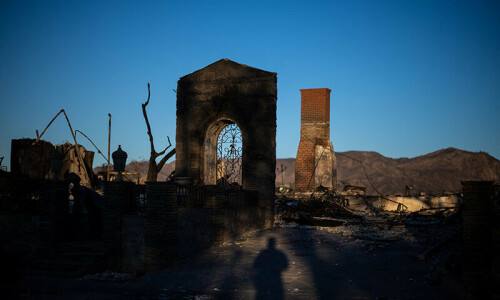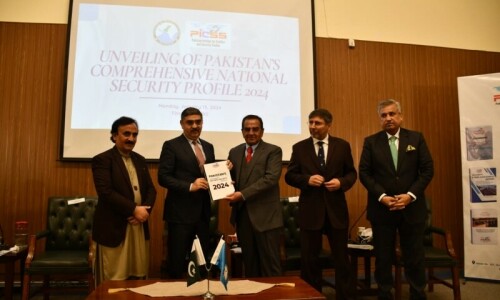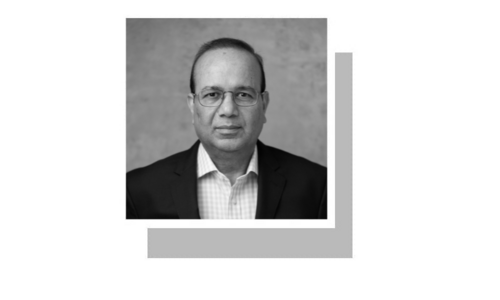ISLAMABAD: The Supreme Court made known on Monday its intention to take a decision, in the light of constitutional provisions and principles laid down in the 1993 Zaheeruddin case verdict, on a complaint that the election procedures discriminate against the Ahmadi community.
A bench comprising Chief Justice Iftikhar Muhammad Chaudhry, Justice Gulzar Ahmed and Justice Sheikh Azmat Saeed was hearing a petition against an amendment to the election rules decreed by Gen Pervez Musharraf in 2002 that effectively declared ‘non-Muslim’ a candidate who, if his faith was challenged, refused to sign a declaration regarding his belief that Prophet Muhammad (pbuh) was the last of the prophets.
Petitioner Kanwar Idrees said a separate electoral list for Ahmadis was an insult meant to exclude them from the mainstream.
Gen (retd) Musharraf had promulgated the Chief Executive Order 15 of 2002, inserting Articles 7B and 7C into the Conduct of General Elections Order, 2002.
Article 7B asks to keep unchanged the status of Ahmadis but Article 7C suggests deletion of the name from the joint electoral rolls of a person who refuses to sign the declaration.
The name then should be added to a supplementary list of voters in the same electoral area as non-Muslim, the law says.
The court said the issue was very sensitive and required an in-depth study for which it also summoned Attorney General Irfan Qadir on the next date of hearing.
It suggested deciding the case in the light of Article 260(3) of the Constitution which included the Qadiani or Lahori group in the definition of non-Muslims.
The court will also consider Section 298C of the Pakistan Penal Code (PPC) which was added to the law book under the Prohibition and Punishment Ordinance of 1984, in addition to the principles laid down in the Zaheeruddin case verdict.
The 1993 Supreme Court judgment had barred people belonging to the Ahmadi community from calling their worship place ‘masjid’ or reciting Azan.
Advocate Munir Paracha and the Election Commission’s Additional Director General (Legal) Abdur Rehman emphasised the need for legislation to amend the list but said inclusion of names in the supplementary electorate rolls did not affect their right to vote for general seats.
The chief justice said the Second Amendment to the Constitution had been introduced by the late prime minister Zulfikar Ali Bhutto, declaring Ahmadis as non-Muslim, and the court could not undo the constitutional command.












































